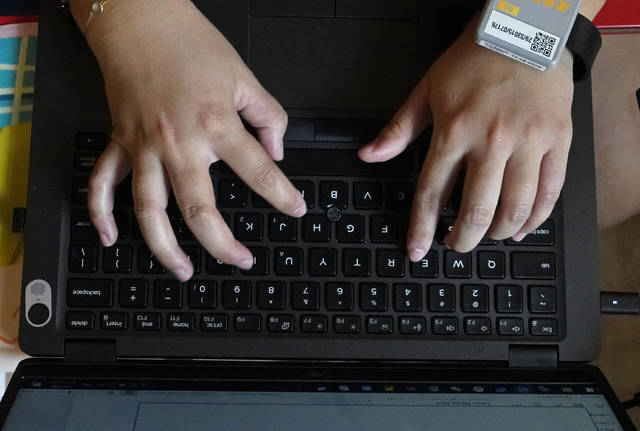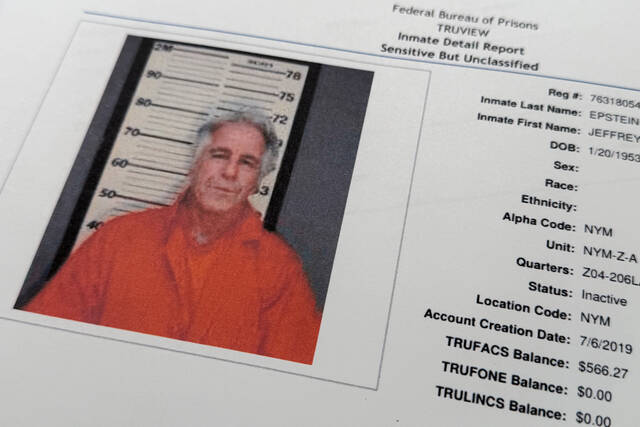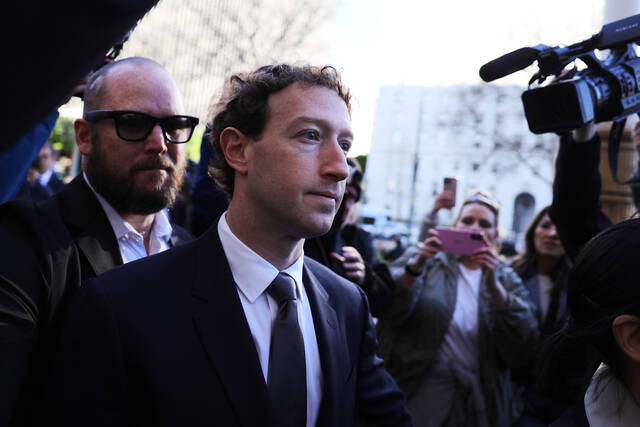“Zoombombers” hurled racist and anti-Semitic slurs during a digital attack on online services held Friday by Congregation Keneseth Israel in Allentown, according to The Morning Call.
Video-conferencing platforms such as Zoom have found a home amid the coronavirus pandemic, which has kept people at home and canceled everything from holidays and birthday to game nights and happy hours.
However, hackers or anyone who can scroll through unprotected video-chats, have also taken the new opportunity to wreak havoc, some of which could rise to the level of a crime.
In the case of the Eastern Pennsylvania synagogue, about 75 worshippers were tuned into the online service when temple administrator Vikki Dunn heard strange music coming from her speakers, The Morning Call reported.
“It didn’t register right away,” Dunn told the newspaper. “The people started saying ‘Death to the Jews’ (and) we heard a ‘Hitler’ thrown in there.”
She told the Call the experience was traumatizing, as it felt like an attack both in her synagogue and in her home at the same time.
Locally, a Leechburg school board meeting last month ended abruptly when a Zoombomber intruded and began sharing pornographic images.
Weeks earlier, U.S. Attorney Scott Brady and state Attorney General Josh Shapiro warned against the practice, pledging to investigate such instances of hacking, noting there had been reports of hate images, porn and threats directed at meeting participants by hackers.
“Hackers are disrupting business and community meetings for sport and targeting specific groups, including addiction recovery meetings, in order to mock, harass and interfere with treatment,” Brady said in a statement. “This is another low point in this crisis. We are better than this. (The Department of Justice) will use all of our resources to find, expose and prosecute these low-lifes.”
Brady said Zoombombers could face charges of using a computer to commit a crime, computer intrusion, disrupting a public meeting, fraud, hate crimes, or sending threatening communications. If they work together on a targeted attack, conspiracy could be added to the charges, he said.
In early April, the Boston chapter of a Jewish youth group was holding a webinar on anti-Semitism on Zoom when a man the Jewish News Syndicate identified as Andrew Alan Escher Auernheimer appeared on-screen to reveal at swastika tattoo on his chest.
Then in late May, an Israeli Torah study group was Zoombombed with Nazi imagery and chants of “free Palestine,” according to the Jewish Journal.
A California church in May filed a lawsuit against Zoom after a Bible study class was bombarded with pornographic images. The proposed class-action lawsuit alleges the Bible study “had their computer screens hijacked and their control buttons disabled” while pornographic videos played, according to USA Today.
The attacks haven’t been limited to religious services and study groups making use of the platform.
The Northwestern Women’s Center was set to hold an online symposium in mid-May when, while there were about 60 people watching, Zoombombers used the “share screen” button to show videos of child sexual abuse.
The Daily Northwestern reported that the group had used the platform’s waiting room feature the first time and did so again when they ended the session and began a new one. Attackers were once again, however, able to get into the conference and share violent imagery.
In California last month, a financial planner was holding a Zoom seminar for potential clients when Zoombombers flooded the session with racial slurs and pornography, according to ABC7.
Eugene Kowel, acting special agent in charge for the FBI’s Pittsburgh field office, encouraged using the platform’s safeguards and reporting hackers to authorities.
“Cyber criminals see this as an easy way to take advantage of vulnerable members of our community,” he said in an April statement.
Federal authorities offered these tips on protecting Zoom conferences from predators:
- Do not make meeting rooms public – either require a password or the waiting room function
- Do not share the link to the meeting on social media
- Manage screen-sharing options
- Use the most up-to-date version of Zoom
- Become familiar with how to close a call while it’s in session and kick people out of the room








